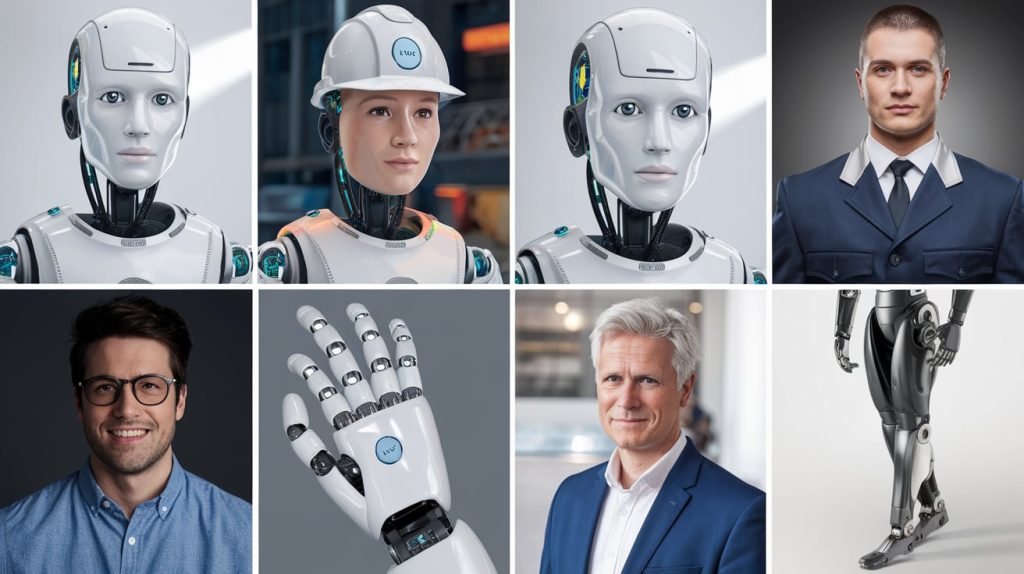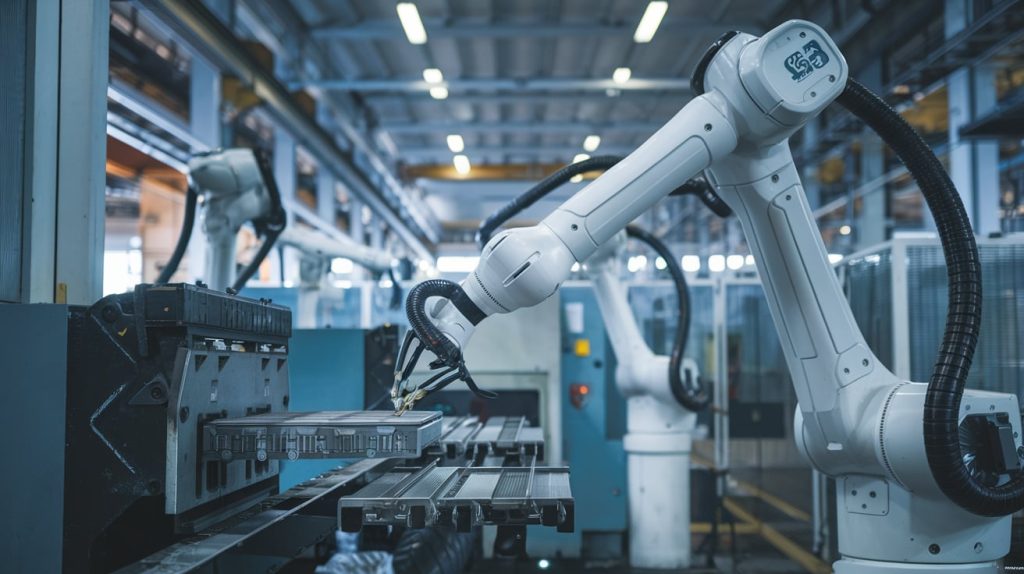Table of Contents
The advent of robots and automation is transforming the global workforce at an unprecedented pace. As robots take on tasks traditionally performed by humans, the labor market is experiencing both challenges and opportunities. While some fear widespread job displacement, others emphasize the potential for new professions to emerge, fostering innovation and economic growth. Understanding how robots are reshaping the workforce is essential to navigating this dynamic era.
The Evolution of Robots in the Workplace

Robots have transitioned from performing simple, repetitive tasks to handling complex operations in fields like manufacturing, logistics, healthcare, and even creative industries. Advancements in artificial intelligence (AI), machine learning, and robotics have enabled robots to work alongside humans, increasing efficiency and productivity.
For example, Amazon’s use of robotic systems in its warehouses has revolutionized logistics by speeding up order fulfillment and reducing human error. Similarly, in the medical field, surgical robots such as da Vinci assist surgeons with precision procedures, enhancing patient outcomes.
Learn more about the role of robots in logistics at Amazon Robotics.
The Fear of Job Displacement
A common concern surrounding automation is the displacement of jobs. As robots take over manual and repetitive roles, industries like manufacturing, retail, and transportation are witnessing significant shifts. For instance, self-driving vehicles are expected to disrupt jobs in trucking and delivery services.
However, studies reveal that automation does not simply eliminate jobs—it reshapes them. The World Economic Forum estimates that while 85 million jobs may be displaced by automation by 2025, 97 million new roles could emerge in fields such as data analysis, AI development, and green technologies.
Visit WEF Future of Jobs Report for detailed insights.
The Rise of New Professions
Automation is not just about replacing human labor; it is also about creating opportunities for new professions that leverage human creativity and problem-solving skills.
Robotics Engineers and Technicians
As industries adopt robotic systems, the demand for skilled professionals to design, maintain, and repair these machines is soaring. Robotics engineers develop cutting-edge solutions, while technicians ensure their smooth operation.
Data Scientists and AI Specialists
The integration of robots into the workplace relies heavily on data-driven decision-making. Data scientists and AI specialists are at the forefront of this transformation, analyzing large datasets to train robots and optimize their performance.
Cybersecurity Experts
With increased automation comes the risk of cyberattacks. Protecting robotic systems and AI-driven networks requires a new generation of cybersecurity experts, equipped to address the vulnerabilities of digital infrastructure.
Human-Machine Interaction Designers
As robots interact more with humans, the need for intuitive interfaces and seamless collaboration is driving demand for human-machine interaction designers. These professionals ensure that robots are user-friendly and enhance human productivity.
Robots as Catalysts for Reskilling

The rise of robots underscores the importance of reskilling and upskilling the workforce. Governments, educational institutions, and private companies are investing in training programs to equip workers with skills relevant to the automated age.
For example, online platforms like Coursera and Udemy offer courses in robotics, AI, and programming, making it easier for individuals to adapt to changing job requirements. Similarly, initiatives like Siemens’ Skills Academy provide hands-on training in advanced manufacturing technologies.
Explore reskilling opportunities at Coursera and Siemens Skills Academy.
Robots and the Gig Economy
Automation is also reshaping the gig economy. Delivery robots, AI-driven personal assistants, and autonomous platforms are creating new avenues for freelance work. For example, platforms like TaskRabbit are enabling individuals to offer services that complement robotic systems, such as assembling furniture delivered by automated logistics networks.
At the same time, the rise of platforms like Upwork and Fiverr allows workers to specialize in fields like programming, graphic design, and digital marketing, many of which align with automation-driven industries.
Ethical Considerations
The integration of robots into the workforce raises important ethical questions. How do we ensure fair access to reskilling opportunities? What policies should govern the deployment of robots in sensitive industries? Addressing these issues is critical to ensuring that automation benefits society as a whole.
Organizations like the International Labour Organization (ILO) are working to establish guidelines that promote equitable transitions in the labor market. Governments, too, are exploring measures such as universal basic income (UBI) to mitigate the potential social impacts of job displacement.
Learn about ethical guidelines for automation at ILO’s Future of Work Initiative.
The Future of Work
The rise of robots is not the end of human labor; rather, it marks the beginning of a new era of collaboration between humans and machines. As routine tasks become automated, workers will have more opportunities to focus on creative, strategic, and innovative roles.
Industries like healthcare, education, and renewable energy stand to benefit immensely from this collaboration. Robots can assist doctors in diagnosing diseases, help teachers personalize learning experiences, and support engineers in building sustainable infrastructure.
Moreover, the shift toward automation is driving societal progress by improving efficiency, reducing costs, and enabling breakthroughs in fields like space exploration and artificial intelligence.
Conclusion
The impact of robots on the workforce is undeniable, but it is not a zero-sum game. While automation presents challenges, it also opens the door to a wealth of opportunities. By embracing reskilling, fostering innovation, and addressing ethical considerations, we can ensure that robots become a force for positive change in the global economy.
The rise of new professions underscores the adaptability of the human spirit and our ability to thrive in the face of technological transformation. As we move forward, a collaborative approach between humans and robots will define the future of work, unlocking potential that benefits individuals, industries, and society as a whole.
For more on the future of work, visit ILO Future of Work.



Pingback: Social Interaction and Virtual Communities in the Metaverse